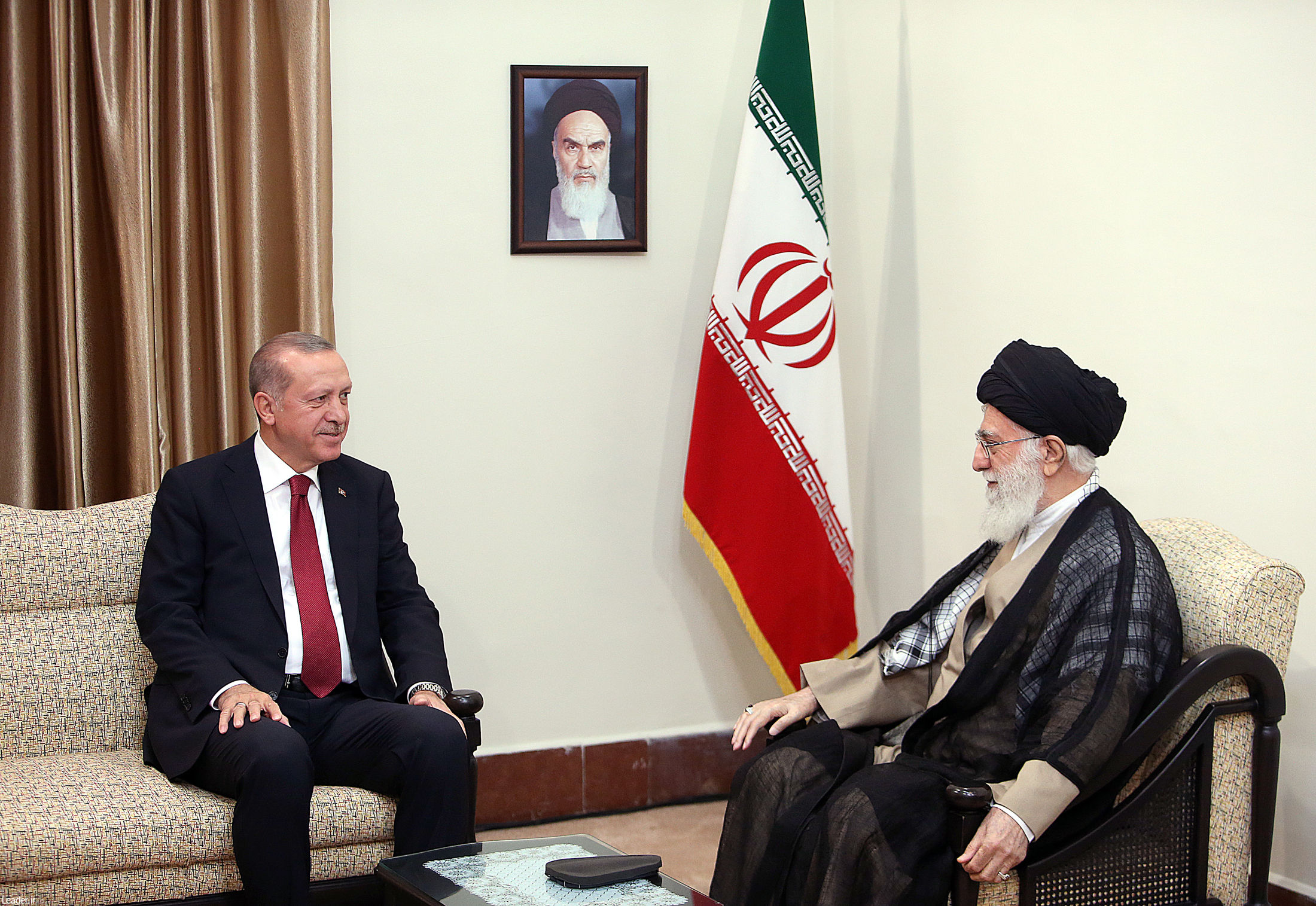Executive Summary
The Astana summit was largely overshadowed by bilateral meetings involving the leaders of Iran, Russia and Turkey, to discuss various issues, including between President Recep Tayyip Erdogan and his Iranian counterpart amidst current Turkish-Iranian tensions. Associated coverage focused on Iranian efforts to dissuade a Turkish military operation in northern Syria which has been rumored for several months. Despite disagreements on Syria and an increase in Iranian proxy-linked attacks on Turkish interests in Iraq, Tehran and Ankara retain cordial strategic ties and pledge to deepen cooperation in various fields.
Supreme Leader Ayatollah Khamenei urged Erdogan not to launch a military operation in Syria
Before attending the Astana talks, Turkish President Recep Tayyip Erdogan held a face-to-face meeting with Iranian Supreme Leader Ayatollah Khamenei, whose presence during the meetings underscored the importance of the trilateral summit held on 19 July. Subsequent coverage of the meeting focused on Khamenei’s efforts to dissuade Turkey from launching another cross-border incursion into northern Syria: “Any military offensive into Syria’s north will definitely harm Turkey, Syria and the greater region, and will benefit the terrorists,” Khamenei was quoted saying. The Supreme Leader also urged Turkey to respect Syrian sovereignty and to settle any issues with Syria through “negotiations” while simultaneously expressing Iran’s willingness to cooperate with Turkey against “terrorism” without offering specifics. No immediate reply was noted in official readouts, however, in a subsequent meeting with President Raisi, Erdogan reiterated the need to eradicate terrorism and emphasized the mutual Iranian-Turkish security concerns faced by the activities of the Iran-based, PKK-linked PJAK.
Differences on Syria aside, the two sides expressed intent to deepen bilateral cooperation in a number of areas. This included plans to renew a 25-year agreement to export Iranian gas through Turkey and to increase the level of bilateral trade, despite existing sanctions. Beyond rhetoric, plans to enhance cooperation were formalized by the signing of a document towards “comprehensive long-term cooperation” and eight memorandums of understandings to expand trade and investments in various fields.
Conflicting messages from Iran to Turkey consistent with long-term approach
Ayatollah Khamenei’s remarks to President Erdogan are the strongest yet by Iran regarding a possible Turkish military incursion into northern Syria. To recall, rumors of a new operation have been ongoing for months and the Iranian position has been subject to somewhat conflicting statements. Meeting counterpart Mevlut Cavosuglu in June, Iranian Foreign Minister Amirabdollahian said Iran “understands” Turkey’s security concerns and even hinted that Iran would accept another incursion against the PKK as necessary. As a strong regional ally of President Assad’s government, however, Iran remains strongly opposed to any further breaches of Syrian sovereignty.
Similarly, but less explicitly, Iran maintains its opposition to Turkish military activities in northern Iraq, where Iran-linked factions continue to target Turkish military presence, citing continued violations of Iraqi sovereignty. Further to the repeated targeting of Camp Zilkan – a Turkish military base located northeast of Mosul – attacks against Turkish presence escalated this week when several rockets impacted near the Turkish consulate in eastern Mosul. No group claimed responsibility, but Iran-linked social media channels quickly discussed the incident as a response to Turkish violations of Iraqi sovereignty.
Issues related to gas exports via Turkey form an additional (but not exclusive) consideration in attacks against KRG-based gas infrastructure, including the most recent targeting of the Khormur gas field in Sulaymaniyah province. While ostensibly related to domestic and political tensions associated with the government formation process in Baghdad, there is an assessed, implicit link to the KRG-Turkey cooperation on gas exports.
These incidents all underline persistent hostilities involving Turkey and Iranian-aligned factions at a local level, however as evidenced by the rhetoric employed during the visit, this does not preclude cooperation and cordial relations at a strategic level. This “dual” and somewhat paradoxical relationship underscores that Iran and Turkey’s relations are both regional rivals and partners, with both sides capable of compartmentalizing areas of disagreement and mutual interest. This week, on 27 July, President Erdogan said Turkey intends to increase its purchase of oil and gas from Iran, in line with the discussions in Tehran, underscoring the relatively limited effect of localized hostilities on broader strategic relations.


